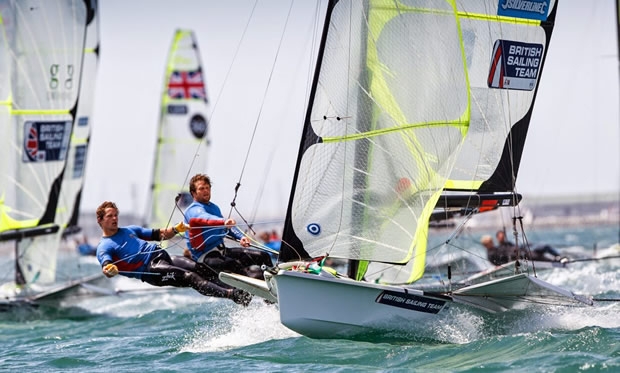
Sail for Gold back on track
Britain’s top Olympic regatta, Sail For Gold is to undergo a welcome transformation this year.
Following the success of the Olympic sailing event in Weymouth in 2012, Sail For Gold unexpectedly seemed to fall by the wayside. In 2013 and 2014 it was part of the grandly entitled EUROSAF Champion’s Sailing Cup, but didn’t manage to attract the comprehensive list of international A-list sailors that attended the regatta before London 2012. But this is set to change in 2015 now that it is one of the five events on the ISAF Sailing World Cup, one of the two Europeans fixtures following Hyeres next week.
The decision to bring what we now call ISAF Sailing World Cup Weymouth & Portland into ISAF’s official Olympic circuit was made at the ISAF Council meeting in the autumn and the event looks set to remain part of the SWC for at least four years hence. The campaign to get Sail For Gold include was spearheaded by Bas Edmonds and John Derbyshire at the RYA and required a monumental submission to be made to ISAF.
At the Council meeting it was deemed that the Sailing World Cup should have two European events, one in northern Europe, one in southern. The latter was a toss-up between Princess Sofia in Palma and Hyeres in France, with Hyeres winning the fight, while the former was between Holland, Denmark, Kiel and Weymouth. Clearly the excellent Weymouth & Portland National Sailing Academy in Weymouth plus the good experience of London 2012, demonstrating not just the top class facility but also the high level of race management on offer swayed the gentlemen in blazers.
Smaller fleets
Hyeres next week (and to be duplicated at the ISAF SWC Weymouth & Portland in June) will be the first occasion that the new fleet number restrictions will be imposed on the ISAF Sailing World Cup, which will see just 40 boats racing in each class.
RYA Olympic Manager Stephen Park views the move to smaller fleets as being a positive step. “I think we’ll get higher quality sailing. And for top end sailors, with big fleets and lots of heats, there’s a bigger risk of someone less capable sailing into the side of them and affecting their regatta. With a smaller, higher quality fleet, it is far easier, from a race management perspective, to run and manage the racing. With 40 boats, it is like dealing with the Gold fleet racing all the time. It is easier to manage, to record the OCS boats and every race you race is effectively going towards your scorecard, rather than half points because it is qualifying.”
With the smaller fleet, running ‘qualifying’ rounds before splitting the fleet into gold and silver, has been dispensed with and now the 40 strong fleets will continue to race as a whole all the way until the top 10 ascend to the Medal Race on the final day.
“One of the good things that we saw out of the Abu Dhabi concept event [the Sailing World Cup Final held last autumn] is that if you have a relatively small event, in terms of the numbers of athletes, it is incredible how much better the racing is and how much reduced is the stress of the racers and the race management team and the jury," continues Park.
"You only have to run one race instead of two and your race officers don’t have to be on the water from dawn until dusk and, because the quality of sailors is higher, you tend to get less protests which means that the jury is fresher. Before, when you got to the business end of an event and the on-the-water judges were getting tired and fatigued, then you could naturally expect a poorer quality of calls.”
Going to smaller fleets has simplified matters in many ways, but not when it comes to the qualification procedure.
For example, to get to race in Hyeres next week, sailors have to be in the top 30 in the ISAF World Sailing Rankings published on 2 February. Similarly for ISAF SWC Weymouth & Portland, these top 30 position will be based on the Rankings published on 27 April.
After these dates, invitations are issued to the top 30 in each class who then have 72 hours to respond. If there are ‘no shows’ then their place is added to the final 10 slots. Of these, four places go to the nation hosting the event and the remainder go to those who have made the grade at each event’s ‘Qualification Regatta’. For Hyeres, the qualifier was Princess Sofia while the qualifier for ISAF SWC Weymouth & Portland is the Delta Lloyd Regatta in Medemblik at the end of May.
After ISAF SWC Round Weymouth & Portland, the Sailing World Cup moves to Qingdao over 14-20 September before winding up at the ISAF SWC Final, once again to be held in Abu Dhabi over 27 October-1 November, where the fleet sizes will be halved again (ie 20 boats/boards per class).
While this all seems to be positive, there are still some hurdles to cross. The principle one is how to ensure that all the A-list sailors attend all of the SWC events regardless of whether they are in Weymouth or in Qingdao or Melbourne. This would be good not just for the competitors – knowing that they will be racing a consistent field throughout the season – but also for the media, who will be able to use these regattas as a guage of Olympic form without having make excuses for ‘xyz’ sailor not being there.
However at present Olympic sailing teams typically plan their programs with the ultimate objective of being able to perform at the Olympic Games (and not the SWC) as this has implications not just in terms of gaining a good medal tally but, in the case of Team GBR for example, also determines the level of funding it will receive for the next Olympic cycle. So for the British team for example it would be easy to see that perhaps its sailors time and campaign budgets would be better spent training in Rio rather than, for example, heading to China for a SWC event.
To get all the A-listers, Stephen Park reckons that there needs to be more incentive for the top sailors to attend all the SWC events: “There are a number of different ways, but perhaps the simplest is to provide prize money and to extend that deep down into the numbers. So if you know that if you finish in the top 10 your costs are covered, and anything better than that you are earning money, then it is a good motivator to go.”
So is this going to happen? “I think it is the desire. ISAF has announced another new sponsor in Gazprom and my understanding is there are discussions on-going with other companies that are fairly well advanced. They are trying to put themselves in a place where they have sources of income that allow them to do this, if they think is the right thing to do.
“Ultimately there needs to be a reason for the teams and the sailors to go to these events. Our sailors might be greatly enthused, but until I say ‘right, we’re going to take a team to Qingdao’, then Qingdao is not going to be on their program. It needs to form a valuable part of their Olympic preparation, because ultimately teams are measured and funded primarily by Olympic performance, not by World Cup results. The only way around that - without having the team funding the sailors to go - is to make the incentive so great that the sailors want to turn around to the teams and say ‘we really want to go here, because it will supplement our campaign costs by winning money or raising our profile or getting good sponsor return, etc.”
While the ISAF Sailing World Cup seems to be coming together as events for elite level Olympic sailors, Park observes that what is also needed is a good structure of ranking events beneath the SWC, enabling a good transfer between those progressing up from the top of ‘Division 2’ into the SWC and those at the bottom of the SWC being relegated.
“You might have continental circuits - so in Europe, the EUROSAF circuit might fulfil that and they might have similar ones in North America and Asia. There are a number of different ways they could do it. Then you have a competition structure - it becomes desirable and aspirational and it builds it on a local level and it saves the requirement for people to travel and fly their boats to the far corners of the earth until you get to the top end.”
Park observes that the effect is already happening and the SWC event in Miami was better subscribed this year, with sailors keener to obtain ranking points to ensure that they will be able to compete in SWC events throughout the year. “Maintaining your position in the Ranking list is important now if you want to go to their key events. And if you want to go to the Olympics, the SWC racing is now more similar to the Olympics. From that perspective there is a reason to go.”
Tomorrow Stephen Park brings us up to speed with the British team

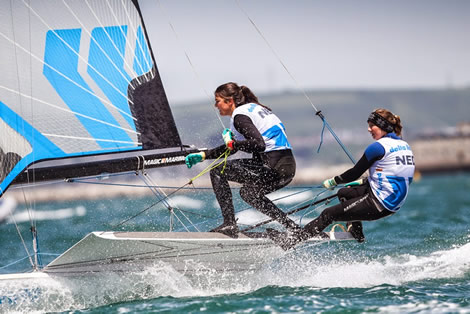
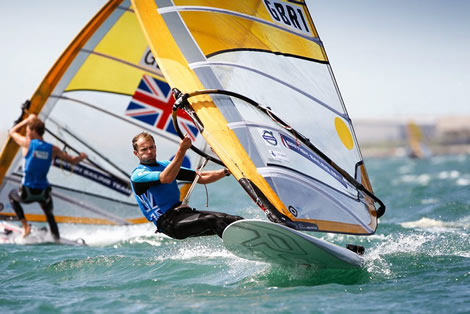
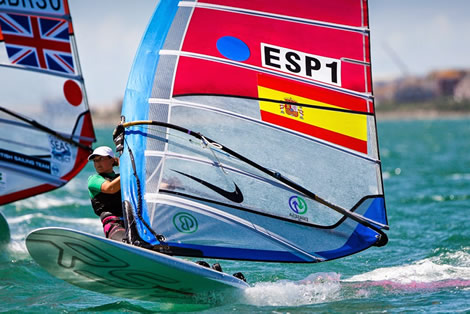
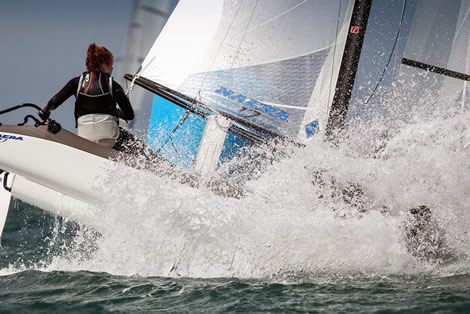











Latest Comments
Add a comment - Members log in